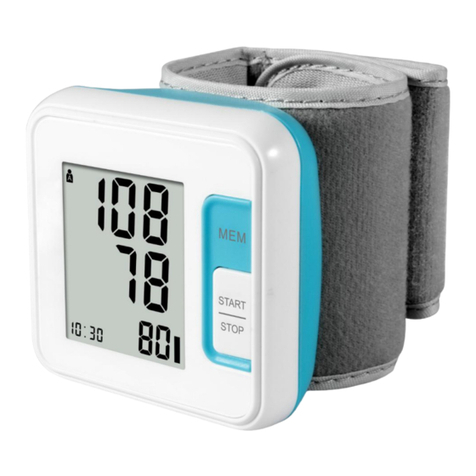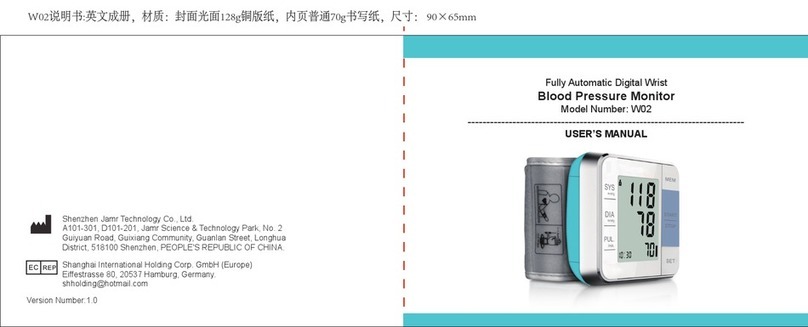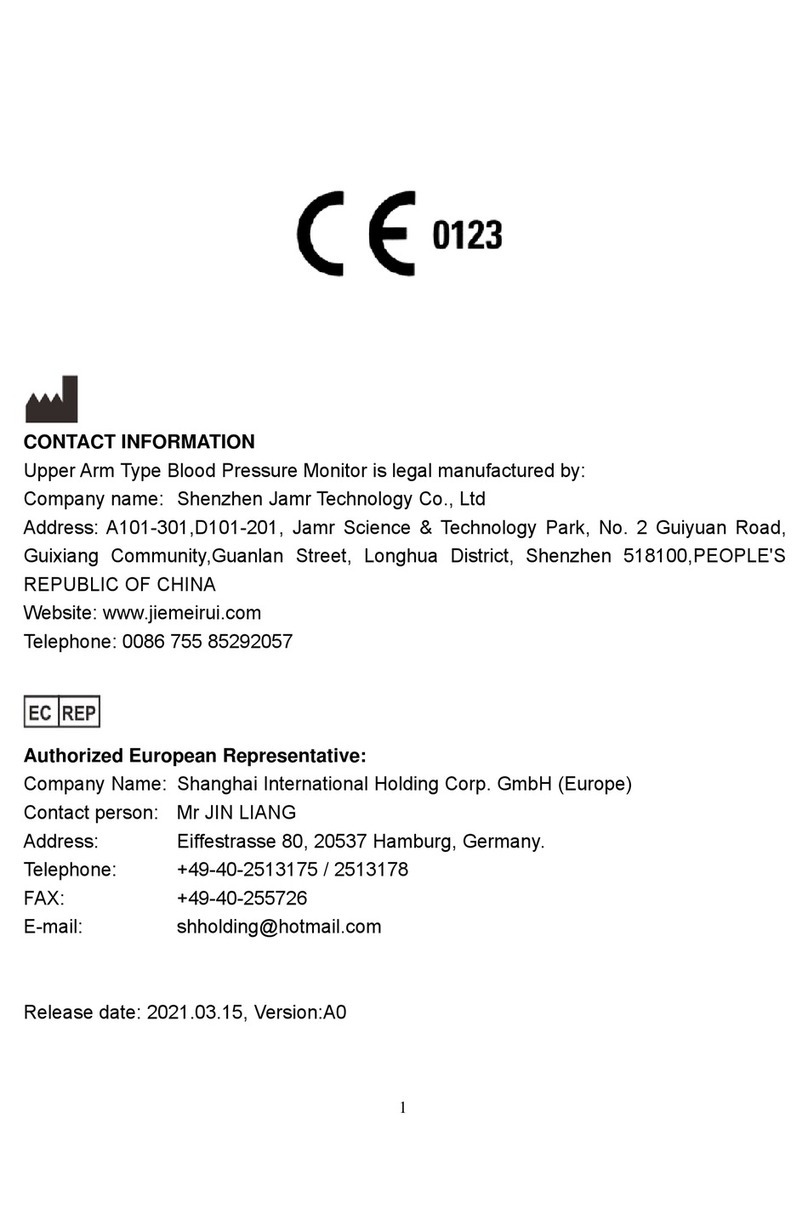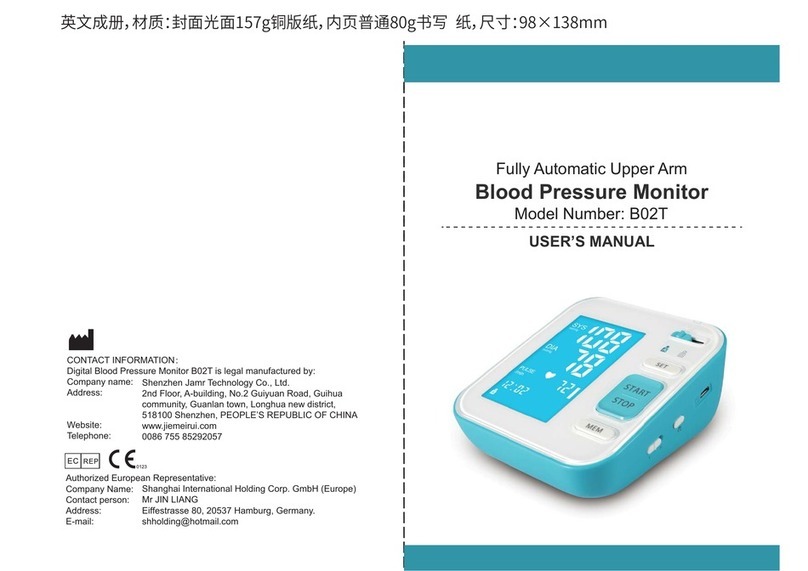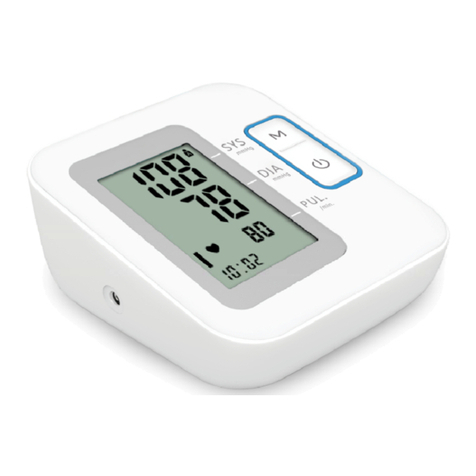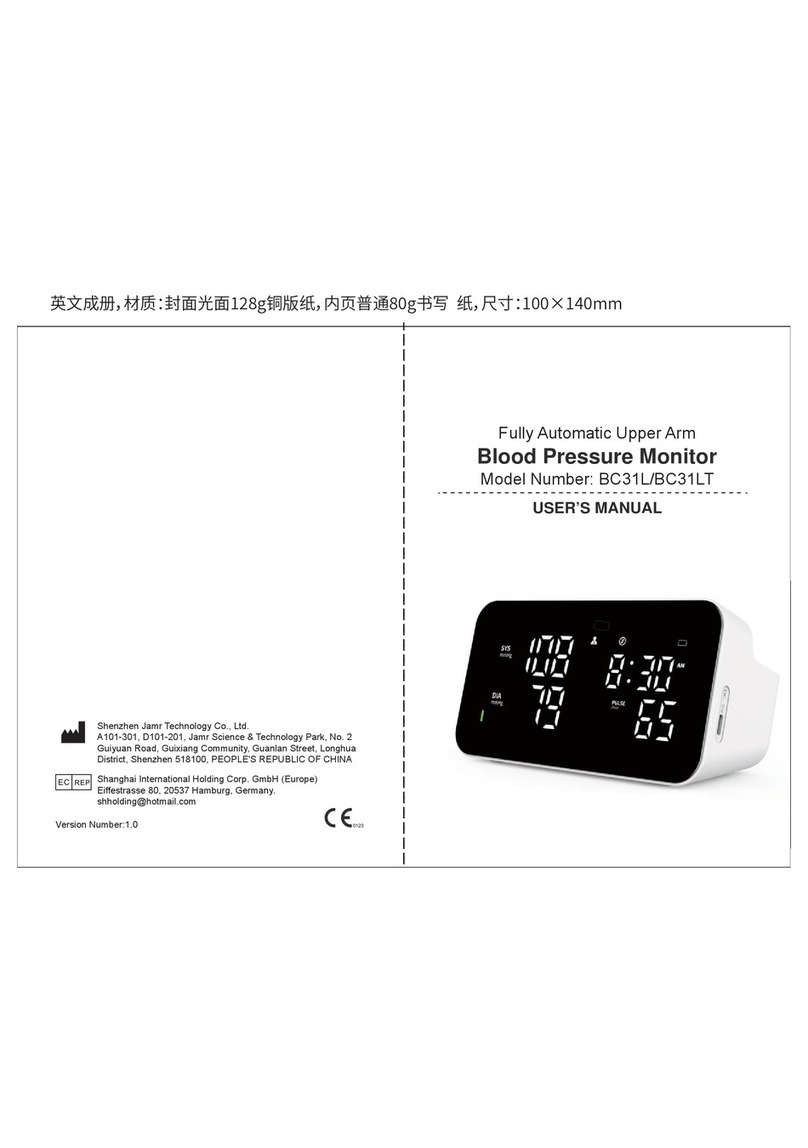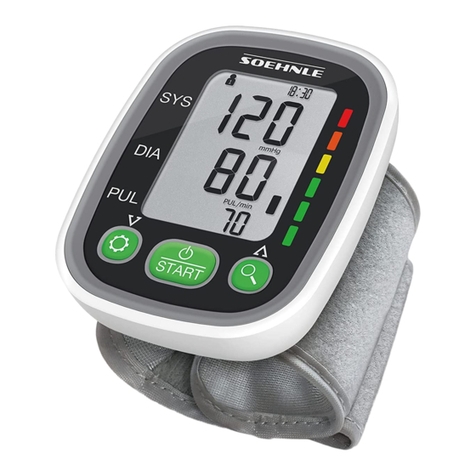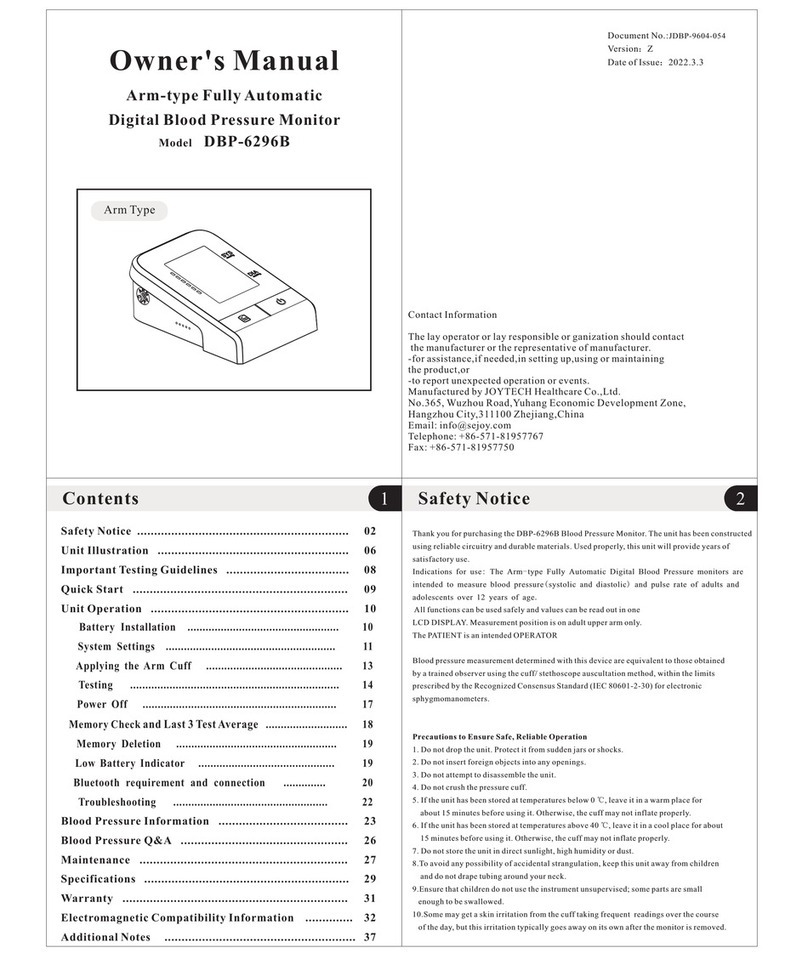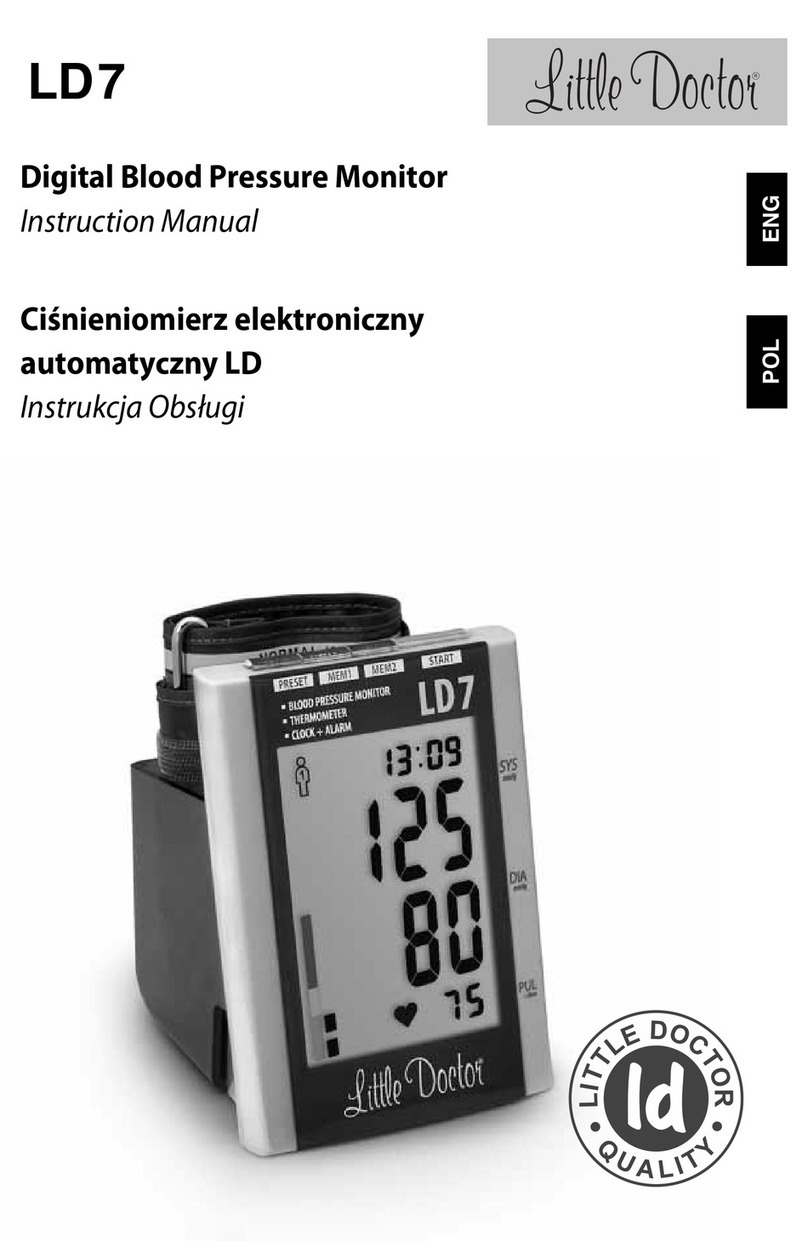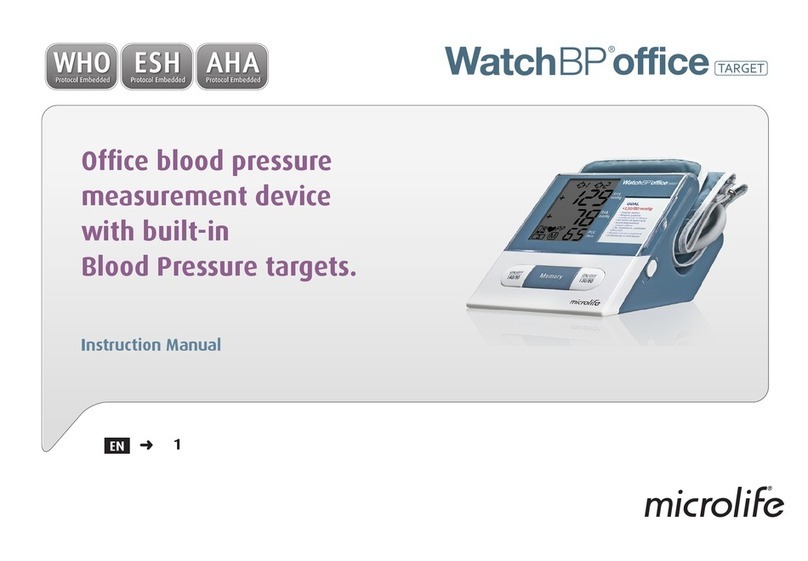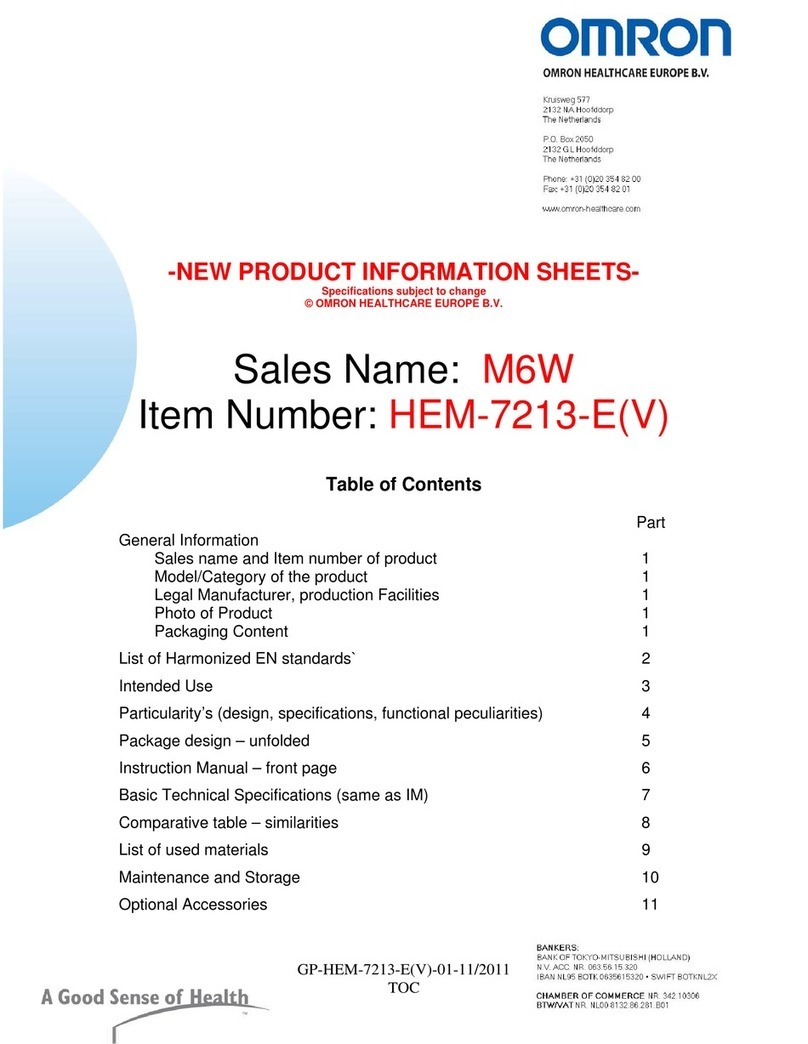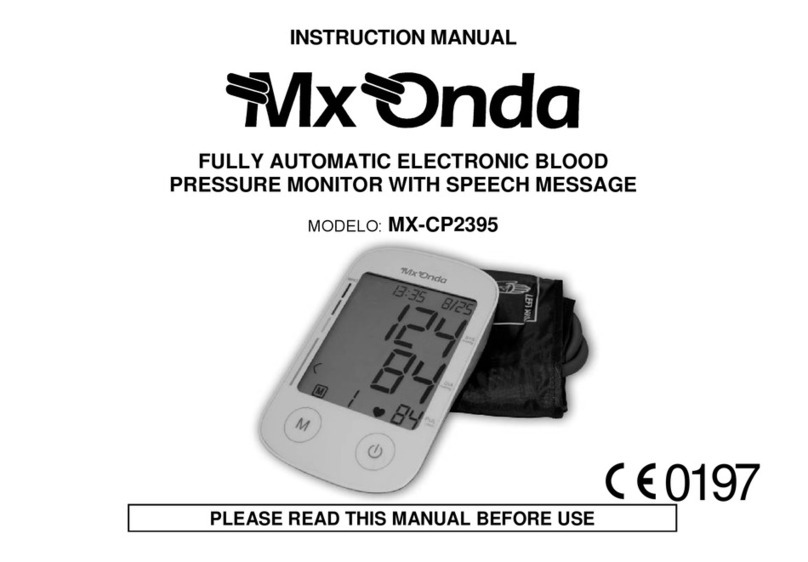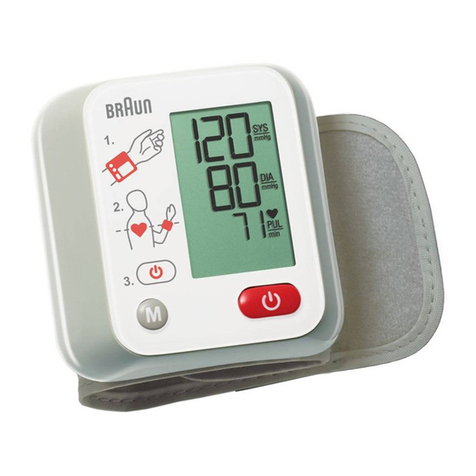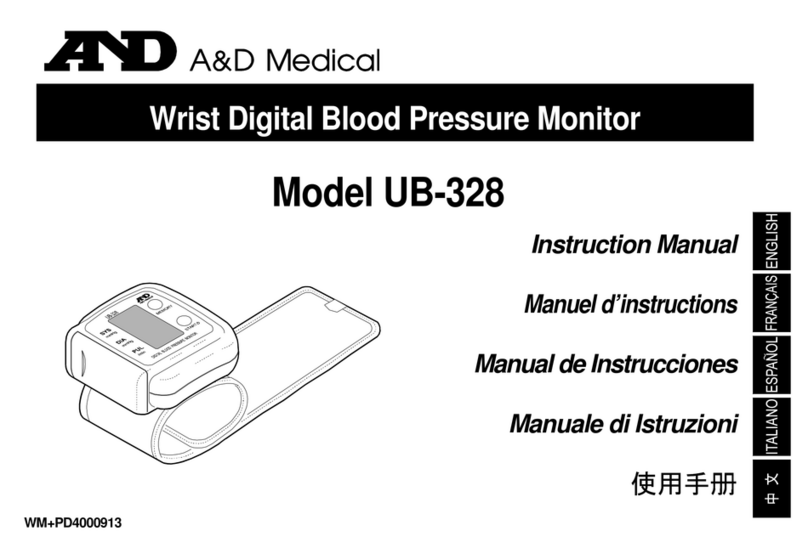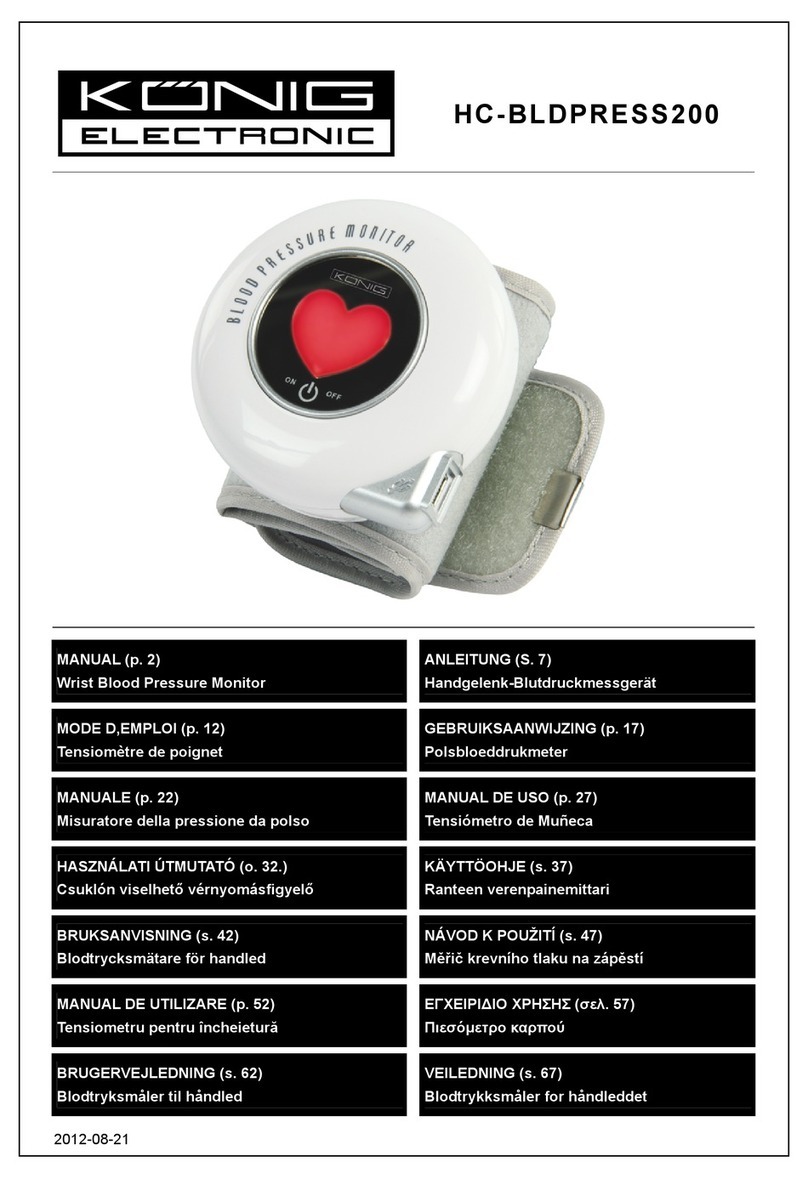
5
• Too frequent measurements can cause injury to the PATIENT due to blood flow interference
• Don’t place the cuff over wound part
• Pressurization of the CUFF can temporarily cause loss of function of simultaneously used
monitoring ME EQUIPMENT on the same limb
• Apply CUFF and its pressurization to any limb where intravascular access or arteriovenous
(A-V) shunts exist, can temporarily interfere with blood flow and may cause injury to the
patient.
• Apply CUFF and its pressurization on the side of the patient's mastectomy or lymph node
removal can cause injury.
Contraindication
Use of this instrument on patients under dialysis therapy or on anticoagulant, antiplatelets, or
steroids could cause internal bleeding.
1.2 Warnings and Precautions
Warning: Do not use cuffs, AC adapters or batteries other than those included with this
product or replacement parts supplied by the manufacturer.
Warning: Do not use the batteries and the AC adapter to provide power at the same time.
Warning: This system may fail to yield specified measurement accuracy if operated or stored
in temperature or humidity conditions outside the limits stated in the specifications section of
this manual.
Warning: The separate ac adapter which is intended to connect USB interface of Blood
Pressure Monitor has not been evaluated according to IEC 60601-1. The safety of the product
shall be reappraised when it power supply by a separate ac adapter.
Warning: Remove the battery if the ME EQUIPMENT is not likely to be used for some time.
Warning: The user must check that the equipment functions safely and see that it is in proper
working condition before being used.
Warning: No modification of this equipment is allowed.
Warning: The device is not suitable for use in the presence of flammable anesthetic mixtures
with air or with oxygen or nitrous oxide.
Warning: Not suitable for use in the presence of flammable agents.
Warning: If having a potential allergic reaction when using the cuff of the device, the user
should immediately remove it and contact the manufacturer or local distributor.
Warning:Regularly checking the operation of the Upper Arm Type Blood Pressure Monitor to
ensure that it does not cause long-term damage to the patient's blood circulation.
Warning:The performance of the Upper Arm Type Blood Pressure Monitor could be affected
by extreme temperatures, humidity and altitude.
Warning:The hose of the cuff can only be connected with the manufacturer's Upper Arm Type
Blood Pressure Monitor,and used in other equipment may cause malfunction.
Warning:Do not bend, squeeze or restrict the connecting hose of cuff during the storage or
operation,, otherwise it will cause injury.
Warning: This equipment shall not be serviced or maintained while in use with the patient
Warning: The patient is an intended operator, the functions of monitoring blood pressure and
